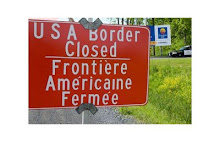
Tuesday, January 4, 2011
A Review of "Toward The Setting Sun" by Brian Hicks

Last month I received an email from Grove/Atlantic Inc., a publishing company. The representative expressed an interest in getting a new book they were releasing out to bloggers. GA sent me a copy and I promised to read it and give a review.
Brian Hicks pulls off telling a detailed history, most know little about, without writing a history book. The story of John Ross, the Cherokee people, a ruthless state and a country with no respect for their own laws is laid out more like a novel than a lesson. Hicks gives a fair and compelling account of the divisions that developed within the Cherokee Nation as the pressure from Georgia and Washington became unbearable. The Andrew Jackson portrayed here creates a circumstance where a reader will have a difficult time gazing on the face on a twenty dollar bill without feeling a certain level of contempt. The story leads up to one of the most tragic events in the history of Native interaction with the United States, the Trail of Tears. The Cherokee story is more than just an account of bad US policies that include extermination, assimilation, removal and termination. It is a story of outright theft, breach of contract and lies from those that children, to this day, are taught to idolize. Mr. Hicks paints the Cherokee principal chief, John Ross, as an uncompromising hero of the highest character who has traitors undermining his authority at the most critical time for the Cherokee Nation.
I recommend the book highly. This story was by no means unique to the Cherokees. It played out over and over again through the entire 19th century and in many ways continues today. This is precisely why "Toward The Setting Sun" is important. I do find that Mr. Hicks seemed to rush the ending of the book and in his loyalty to the honor of John Ross neglected to address the Chief's dream of Cherokee statehood in the controversial light it was truly received. Mr. Hicks also seemed to gloss over John Ross' support of slavery and in particular how it was that while an entire third of the Cherokee population perished on the forced march to Oklahoma that he managed to have the resources to get his 50 slaves moved with little trouble. In spite of a few short comings, "Toward The Setting Sun" should be read to provide, not only historical context for Native life at the time, but context for the lives, positions and views that Native people still have. Read this book.
Subscribe to:
Post Comments (Atom)













![-[]-[]-/\-[]-[]-](https://blogger.googleusercontent.com/img/b/R29vZ2xl/AVvXsEjLoXmKO8PJVQ5pZ2q7GX7nFKw8H2tb28dxt-o10FUBNtOGszWhWoLB7tgjtMgtISpuSxNW3fcDxfuSS2DqojsdjNJ1lVggyUS374PnzsDbOhk4ukvtTunFQcyfkckZeBzcLbri4LDYN_E/s214/29-03-A-voice-from-the-Akw-.jpg)





2 comments:
Check out my interview with Brian Hicks on LTN. A link to all my shows are on the side bar.
I thoroughly enjoyed this book, due in part for the reason that I am a direct descendant of John Vann, and mostly because this is a well-written account of the traumatic force removal of the Cherokee to another land. Most of my ancestors got to stay in Western North Carolina and Tennessee, but many didn't. I am glad this storu is being kept alive today.
Post a Comment